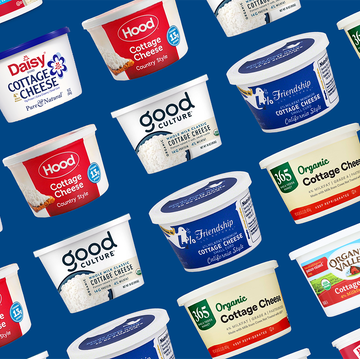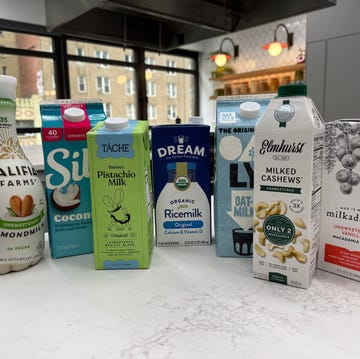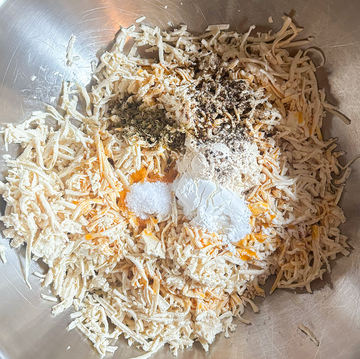Tequila shots or vodka shots: That is the question. Or perhaps you prefer your liquor mixed in a cocktail. When deciding what to drink, people often turn to the interwebs to weigh the pros and cons of their preferred poison. While you might think that vodka and tequila—two primarily clear spirits—are interchangeable, each has its own benefits and drawbacks. So next time someone nudges you to one tequila, two tequila, three tequila, floor, here's everything you'll need to know first.
Potential Benefits Of Tequila
According to Lauren Manaker, M.S., R.D.N., tequila is often praised for its low sugar content, especially tequilas that are made from 100% agave. Agave plants are also full of prebiotic-rich fructans, explains Jessica Strawn, M.A., R.D.N. Fructans are small molecules that help manage blood lipids and glucose levels. They also promote gut health by restoring beneficial bacteria. "Additionally, fructans help release hormones linked to satiety, reducing hunger, and offer anti-inflammatory and antioxidant properties due to the flavonoids in the plant itself," she explains. However, Strawn notes that even though the agave plant offers numerous health benefits, there has been limited research on whether these properties carry over into tequila post-fermentation and distillation.
On the plus side, consumers can be sure that tequila and related spirits like mezcal are free from any added pesticides, thanks to strict regulations regarding their production.
Potential Benefits Of Vodka
When compared to tequila, Manaker tells us that vodka is typically lower in calories and has a neutral flavor, making it perfect for mixing with low-calorie ingredients. Strawn mirrors that sentiment, emphasizing that its versatility makes it easier to mix with different beverages, catering your final cocktail to your dietary preferences. However, because it is made from grains, corn, or potatoes, it doesn't really offer any significant nutritional value, states Strawn.
Health Risks Of Tequila & Vodka
While all alcohol can damage your liver and affect organs throughout your entire body, there are some risks specific to tequila and vodka.
You might recall that many people tout the differences between tequila and other spirits, claiming that tequila is an "upper," while other alcohols are typically referred to as "downers." However, according to Strawn, "the science behind alcohol shows that all forms of alcohol act as depressants, slowing down the central nervous system." For this reason, exercise caution when consuming either, especially those with depression or those taking antidepressant medications.
When it comes to tequila, note that agave is naturally higher in fructose than glucose. "Foods with a high fructose content may, over time, contribute to insulin resistance, increasing the risk of type 2 diabetes. Additionally, excess fructose intake has been linked to metabolic disturbances, affecting liver function and lipid levels in the body," Strawn explains. Luckily, tequila does not appear to be any sweeter than vodka and usually clocks in at similar calorie counts.
So, Which One Is Better For You?
"When it comes to deciding whether tequila or vodka is healthier, the truth is that the differences are minimal," Manaker says. "What often matters more is the way you drink them and what you mix them with." Indeed, what you pair with your spirit of choice can heavily influence just how nutrient- or calorie-dense your resulting drink is. "For instance, a glass of tequila paired with a super-sugary pre-made margarita mix loaded with high fructose corn syrup isn't going to do your health any favors. On the other hand, mixing tequila with fresh lime juice and a splash of soda water is a much lighter option," Manaker explains.
"Ultimately, it all comes down to preference, taste, and what you mix it with. If calories are a priority, a vodka with tonic or sparkling water is one of the most calorie-efficient choices," Strawn says. Or, she recommends squeezing in vitamin C-rich lemon slices for both added flavor and added health benefits.
As Manaker succinctly puts it, "At the end of the day, both are forms of alcohol and should be consumed in moderation."













